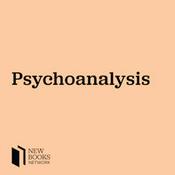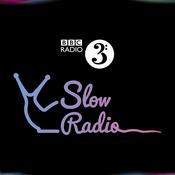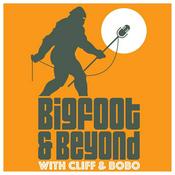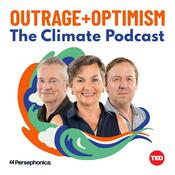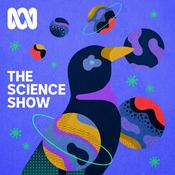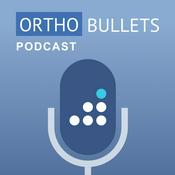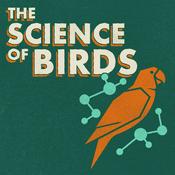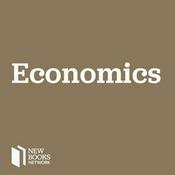395 episodes
Erica Lorentz, "Body As Shadow: Jung’s Method of Embodied Healing" (Karnac, 2026)
18/2/2026 | 48 mins.Body as Shadow: Jung’s Method of Embodied Healing is Jungian analyst Erica Lorentz’s passionate, clinically grounded argument that Jung’s psychology was never meant to be “head-only.” It was always an embodied practice, one that asks us to meet psyche where it actually lives: in sensation, emotion, energy, imagination, and what Jung called the somatic unconscious or subtle body.
At the heart of the book is Lorentz’s central method: embodied active imagination, a way of working in which inward attention to a symptom, sensation, or emotion becomes a portal into imaginal material and archetypal depths, without forcing interpretation or prematurely translating experience into words. This approach is shaped by her long apprenticeship in Authentic Movement (also known as Movement as Active Imagination), where the psyche is allowed to emerge through the body in a protected relational container and a non-directive witnessing stance.
Lorentz argues that many modern approaches to trauma and psychotherapy remain constrained by a left-brain bias: we attempt to heal through insight, narrative, and cognitive explanation, while the original wound and the original healing energy often sits below language. Drawing on Jung’s own words from the Zarathustra Seminar, she emphasizes the mysterious interlocking place where body and psyche become indistinguishable: where we cannot know if we are in matter or in psyche, because we are in both.
Throughout the book, Lorentz bridges what is too often split in Jungian circles: developmental work and archetypal work. She insists that when we work with complexes, we must come to terms not only with childhood roots, but with the archetypal core “on its own ground”, because the archetype is not a metaphor; it is a force, and one we encounter in a bodily way.
Erica Lorentz, M.Ed., L.P.C., is a Jungian analyst (IAAP) and training analyst at the C. G. Jung Institute of New England. With early roots in dance and decades of experience in Authentic Movement (Movement as Active Imagination), she integrates depth psychology with embodied and imaginal approaches to healing. Trained in object relations and shaped by clinical work with autistic and psychotic youth, she has taught and lectured widely on Jung, the body, and embodied active imagination across the US, Canada, the UK, and internationally, including teaching in India in 2024.
Helena Vissing, PsyD, SEP, PMH-C is a Licensed Psychologist practicing in California and Associate Professor at California Institute of Integral Studies. She can be reached at [email protected]. She is the author of Somatic Maternal Healing: Psychodynamic and Somatic Treatment of Trauma in the Perinatal Period (Routledge, 2023).
Learn more about your ad choices. Visit megaphone.fm/adchoices
Support our show by becoming a premium member! https://newbooksnetwork.supportingcast.fm/psychoanalysisJoseph Scalia III and Lynne S. Scalia, "Critical Consciousness: Beyond Impasses in Environmentalism, Psychoanalysis, and Education" (Routledge, 2025)
05/2/2026 | 1h 4 mins.Critical Consciousness: Beyond Impasses in Environmentalism, Psychoanalysis, and Education (Routledge, 2025) provides insight into the antagonism and disputative dialogue present in contemporary discourse.
Our guest for this interview, author Joseph Scalia III, Psya.D. is a psychoanalyst, environmental activist, and Co-Director of the Institute for a Democratic Psychoanalysis. Co-authored with Lynne Scalia, Critical Consciousness is of great interest to psychoanalysts in practice and in training, and to readers interested in the psychological aspects of dehumanization, competition, and opposing group identity.
Taking a broad, pluralistic psychoanalytic perspective, the authors shed light on how and why ideology and conflict have infiltrated education, environmentalism, and psychoanalysis. This book unpacks forms of indoctrination and rejection of new ideas in environmentalism, considers the desubjectification of the human in mental health "services," and assesses how the educational world needs leaders who can articulate unspoken educational aims that perpetuate inequalities, hidden oppression, and their pathogenic effects on disenfranchised groups. This book takes account of the competing schools of psychoanalysis, their members' dismissiveness and enmity toward each other, and their rationalized resistances to discussion across the aisles. From that viewscape, a challenging path forward is proposed.
Your host, Ben Greenberg, PsyD is a psychologist, psychoanalyst, and founding director of the Center for Dynamic Practice in Santa Fe, NM. After a wonderful recent conversation with Tracy Morgan about Psychoanalysis, she suggested I become a host to do interviews about a few books I mentioned I'm excited about. I love to hear interviews about new books. I have published several scientific papers among other written media, and am working on a few book manuscripts as well.
Learn more about your ad choices. Visit megaphone.fm/adchoices
Support our show by becoming a premium member! https://newbooksnetwork.supportingcast.fm/psychoanalysisLouis Rothschild, "Rapprochement Between Fathers and Sons: Breakdowns, Reunions, Potentialities" (Karnac, 2023)
26/1/2026 | 1h 7 mins.Today I spoke with Dr. Louis Rothschild about his new book Rapprochement Between Fathers and Sons Breakdowns, Reunions, Potentialities (Karnac, 2024). Our conversation moved freely between theory, generational attitudes, thinkers, and personal vignettes.
What is a good enough father? What is the difference between a man of achievement and a man of power? Who is the father of the mother’s mind? What happens when a father enables holding? How is masculinity valued by other men? What is meant by phrases such as a “man’s gotta do what a man’s gotta do?” Why exactly do we need to “call the boy’s father?” How is the father’s role rendered invisible? These are some of the questions subsumed in the broader question of “Who nurtures and who is nurtured?” (And does the myth of the “self-made-man” indicate a man who exists without nurturing?)
“What I'm arguing”, says Rothschild, “is that that sexist dichotomy is a mirage in its own right and that attachment strings needn't be severed. They can be reworked over the lifespan and this idea of having this clean tidy break and going off to live your life where liberating the kid from this regressive maternal bond is the path to individuation, I think that's just patently false.”
Like an analyst, the book has been in formation for many years. “Percolating and distilling” as Dr. Rothschild says at the top of the interview. Motivated by the “way the culture was shifting” he sensed “that things I take for granted are actually a minority opinion.” Rothschild’s survey of sons includes mythology; Oedipus scripture; Issac. As well as the sons of literature; Sendak’s Max, Silverstein’s Boy, White’s Swan, and others. Affect rich case illustrations are also presented. The issues addressed in the book are the ones we are contending with in in analysis. They are the discussions we are having with our fathers, sons, and families. Rothschild’s book is essential and meets the clinical moment.
“Louis Rothschild’s book is both an outstanding representative of ‘return to the father’ and a unique explication of psychoanalytic thought on its own. This is a book of great literary elegance and impressive psychological wisdom.” Salman Akhtar, MD
Christopher Russell, LP is a psychoanalyst in Chelsea, Manhattan. He is a member of the faculty and supervising analyst at The Center for Modern Psychoanalytic Studies and The New York Graduate School of Psychoanalysis. His primary theorists are Sándor Ferenczi and Hyman Spotnitz.
Learn more about your ad choices. Visit megaphone.fm/adchoices
Support our show by becoming a premium member! https://newbooksnetwork.supportingcast.fm/psychoanalysisJuliane Maxwald, "Psychoanalytic Sex Therapy: Exploring the Unconscious Life of Sexuality" (Taylor & Francis, 2025)
21/1/2026 | 50 mins.Today I spoke with Juliane Maxwald abut her new book Psychoanalytic Sex Therapy: Exploring the Unconscious Life of Sexuality (Taylor & Francis, 2025). Maxwald bridges psychoanalytic theory with contemporary sex therapy to demonstrate that sexual symptoms are rarely just about sex—they're embodied expressions of unconscious conflict, early attachment wounds, relational trauma, and unmet developmental needs. Through eleven richly detailed clinical cases—including Jon's shame-bound spanking fantasies, Connie's trauma-releasing masturbation, Maurice's porn use masking performance anxiety, Joelle's compulsive sexual behavior, Brian's BDSM healing, and Anna and Darren's painful desire discrepancy—Maxwald shows how integrating psychodynamic insight with behavioral interventions, somatic awareness, and trauma-informed care creates transformative healing. The book argues that sexuality is a "portal to the unconscious," where repetition compulsion, dissociation, shame, and erotic transference play out in the body, and that therapeutic work requires not just fixing dysfunction but decoding symbolic meanings, tolerating ambiguity, attending to countertransference, and creating relational safety where clients can reclaim embodied agency, authentic desire, and the capacity for surrender—while acknowledging that sometimes, pragmatically, "a cigar is just a cigar" and simpler medical or behavioral solutions serve clients best.
Learn more about your ad choices. Visit megaphone.fm/adchoices
Support our show by becoming a premium member! https://newbooksnetwork.supportingcast.fm/psychoanalysisAnna Fishzon, "The Impossible Return - Psychoanalytic Reflections on Breast Cancer, Loss, and Mourning" (Routledge, 2025)
20/1/2026 | 51 mins.Today I spoke with Anna Fishzon about her new book The Impossible Return - Psychoanalytic Reflections on Breast Cancer, Loss, and Mourning (Routledge, 2025). The Impossible Return is a hybrid work of cancer memoir, psychoanalytic theory, and Soviet history that explores the author's experience with breast cancer through the lens of mourning, loss, and identity. Fishzon weaves together her personal narrative of mastectomy and reconstruction with psychoanalytic concepts—particularly the uncanny, shame, and the impossibility of fully mourning what has been lost—while drawing connections to her late Soviet Ukrainian childhood and her deep engagement with opera. The book examines how the reconstructed breast becomes an uncanny double, how the prosthetic oscillates between absence and presence, and how cancer survivorship involves living with "scanxiety" and perpetual waiting. Through this autotheoretical approach, Fishzon explores broader questions about memory as scar tissue, the relationship between voice and embodiment, and what she calls the "terribly obscure utopian" work of psychoanalysis—asking the impossible of both analyst and patient, much like perestroika's call for reconstruction. The work treats cancer survival not as a triumph narrative but as an ongoing, repetitive process of attempting to mourn something that remains fundamentally unmournable.
Learn more about your ad choices. Visit megaphone.fm/adchoices
Support our show by becoming a premium member! https://newbooksnetwork.supportingcast.fm/psychoanalysis
More Science podcasts
Trending Science podcasts
About New Books in Psychoanalysis
This podcast is a channel on the New Books Network. The New Books Network is an academic audio library dedicated to public education. In each episode you will hear scholars discuss their recently published research with another expert in their field.
Discover our 150+ channels and browse our 28,000+ episodes on our website: newbooksnetwork.com
Subscribe to our free weekly Substack newsletter to get informative, engaging content straight to your inbox: https://newbooksnetwork.substack.com/
Follow us on Instagram and Bluesky to learn about more our latest interviews: @newbooksnetwork
Support our show by becoming a premium member! https://newbooksnetwork.supportingcast.fm/psychoanalysis
Podcast websiteListen to New Books in Psychoanalysis, Ologies with Alie Ward and many other podcasts from around the world with the radio.net app
Get the free radio.net app
- Stations and podcasts to bookmark
- Stream via Wi-Fi or Bluetooth
- Supports Carplay & Android Auto
- Many other app features
Get the free radio.net app
- Stations and podcasts to bookmark
- Stream via Wi-Fi or Bluetooth
- Supports Carplay & Android Auto
- Many other app features

New Books in Psychoanalysis
Scan code,
download the app,
start listening.
download the app,
start listening.
